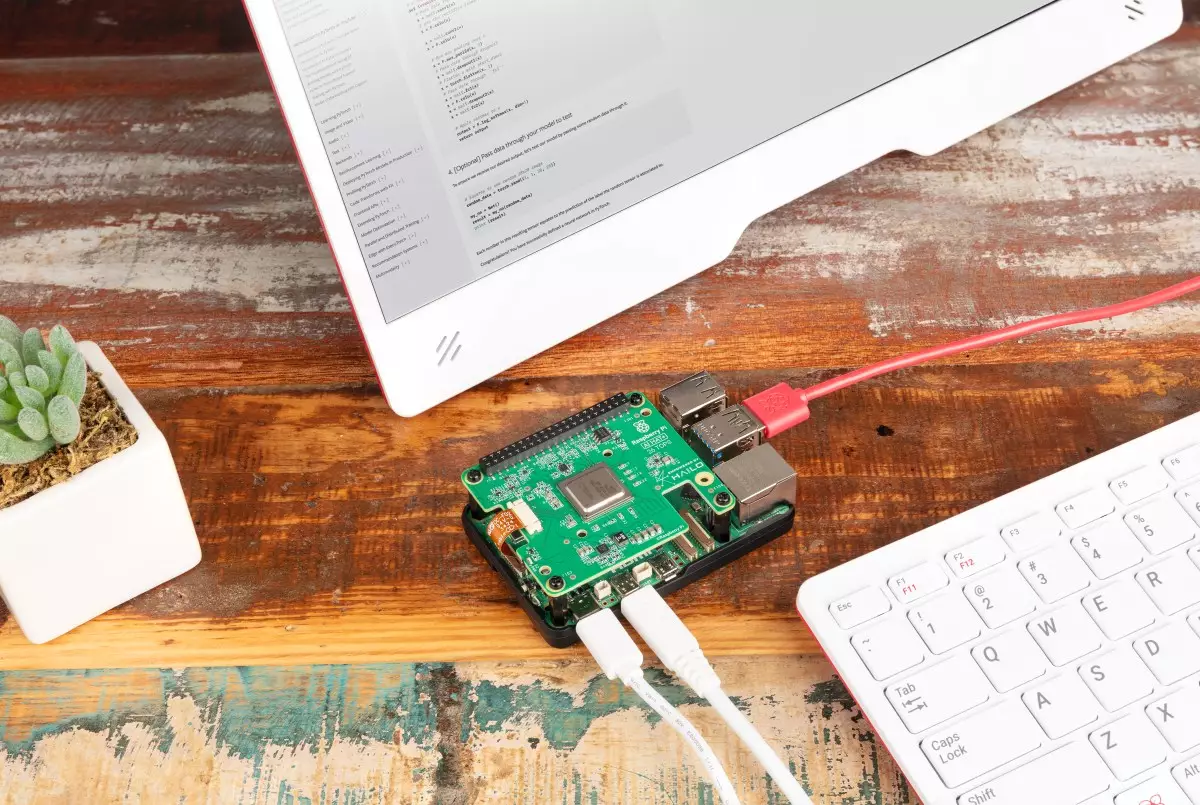Raspberry Pi, a name synonymous with accessible computing power, is embarking on a new journey of innovation and expansion. Known primarily for its affordable and compact single-board computers, Raspberry Pi continues to capture the imaginations of makers, educators, and enterprises alike. The recent unveiling of new products emphasizes the company’s commitment to not just enhancing user experience but also pushing the boundaries of what these devices can achieve.
At the heart of Raspberry Pi’s latest efforts is the Raspberry Pi 5, which has garnered attention for its advanced features, including a PCIe 3.0 interface. This interface is accessible via a 16-pin connector that opens up a world of possibilities for users to attach various expansion boards and devices. The versatility of the Raspberry Pi 5 is notably highlighted through its support for M.2 HAT+ extension cards, bridging the gap between hobbyist projects and more demanding industrial applications.
The introduction of M.2 technology is especially noteworthy as it allows users to connect NVMe SSDs to their Raspberry Pi 5, thereby significantly increasing storage capabilities and data transfer speeds. This additional layer of performance not only enhances the usability of Raspberry Pi for individual projects but also aligns with the growing trend of edge computing, where processing power is moved closer to the data source.
One of the focal points of the recent product launch is the Raspberry Pi AI HAT+, designed specifically to optimize artificial intelligence capabilities on the Raspberry Pi platform. Integrated with a neural network inference accelerator from Hailo, this new addition comes in two variants offering up to 26 tera-operations per second (TOPS). These powerful modules retail at $70 for the 13 TOPS and $110 for the 26 TOPS versions, making them accessible yet potent tools for AI enthusiasts.
While the Raspberry Pi may not serve as the optimal device for training complex AI models, the AI HAT+ enables efficient inference tasks at the edge. This allows developers to experiment with practical AI implementations in a cost-effective manner, reinforcing Raspberry Pi’s positioning as a platform for innovation. The streamlined design of the AI HAT+ differentiates it from the existing M.2 extensions, focusing solely on enhancing machine learning operations without the complexity of additional components.
In conjunction with its AI advancements, Raspberry Pi has also announced its own branded line of NVMe SSDs aimed at maximizing the performance of the Raspberry Pi 5. Offering a 256GB model for $30 and a 512GB variant for $45, these SSDs ensure that users can easily find compatible storage options without the hassle of sifting through third-party products. The SSD Kit bundles, which include a compatible M.2 HAT+ extension and either a 256GB or 512GB SSD, further simplify the purchasing process, making it a breeze for newcomers to the Raspberry Pi ecosystem.
By introducing dedicated storage solutions, Raspberry Pi is not only catering to the needs of individual users but also strengthening its ecosystem’s coherence. Ensuring compatibility with their hardware provides peace of mind for users who may be wary of potential issues that can arise from using unverified components.
Raspberry Pi’s rapid expansion in product offerings showcases its ambition to transcend traditional boundaries. The adaptability of the Raspberry Pi 5, combined with innovative expansions like the AI HAT+ and proprietary storage solutions, demonstrates a strategic move towards capturing a larger share of the market. Educational institutions, prototyping companies, and industrial users will likely find immense value in these new capabilities.
As the demand for edge computing and AI solutions continues to rise, Raspberry Pi is positioning itself as a key player in the tech landscape. The combination of affordability, functionality, and community engagement has always differentiated Raspberry Pi from other computing platforms. With these latest innovations, the company is not merely keeping pace with advancements in technology but actively shaping its future. With this commitment to innovation, Raspberry Pi is likely to remain a beloved and indispensable tool for creators, engineers, and educators for years to come.

